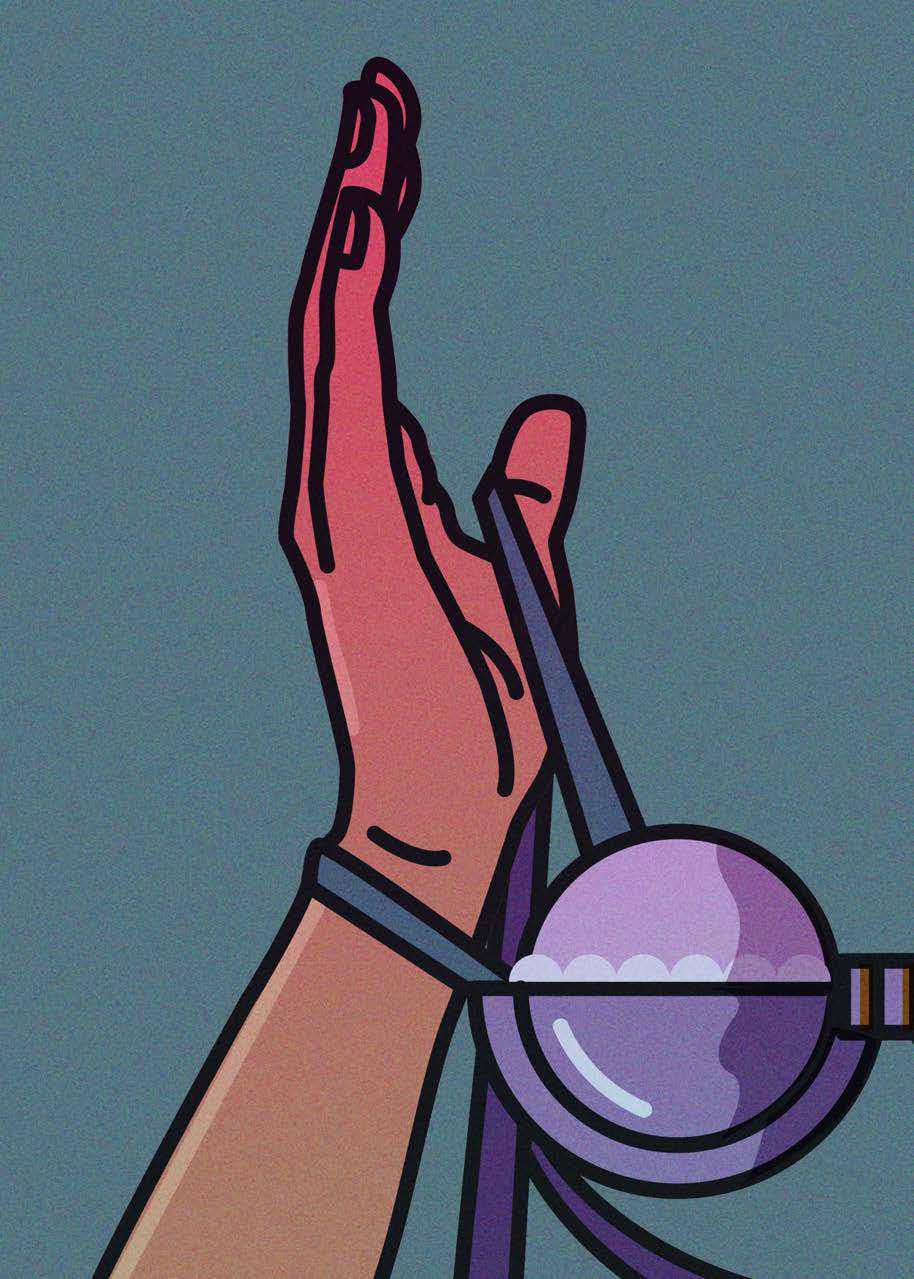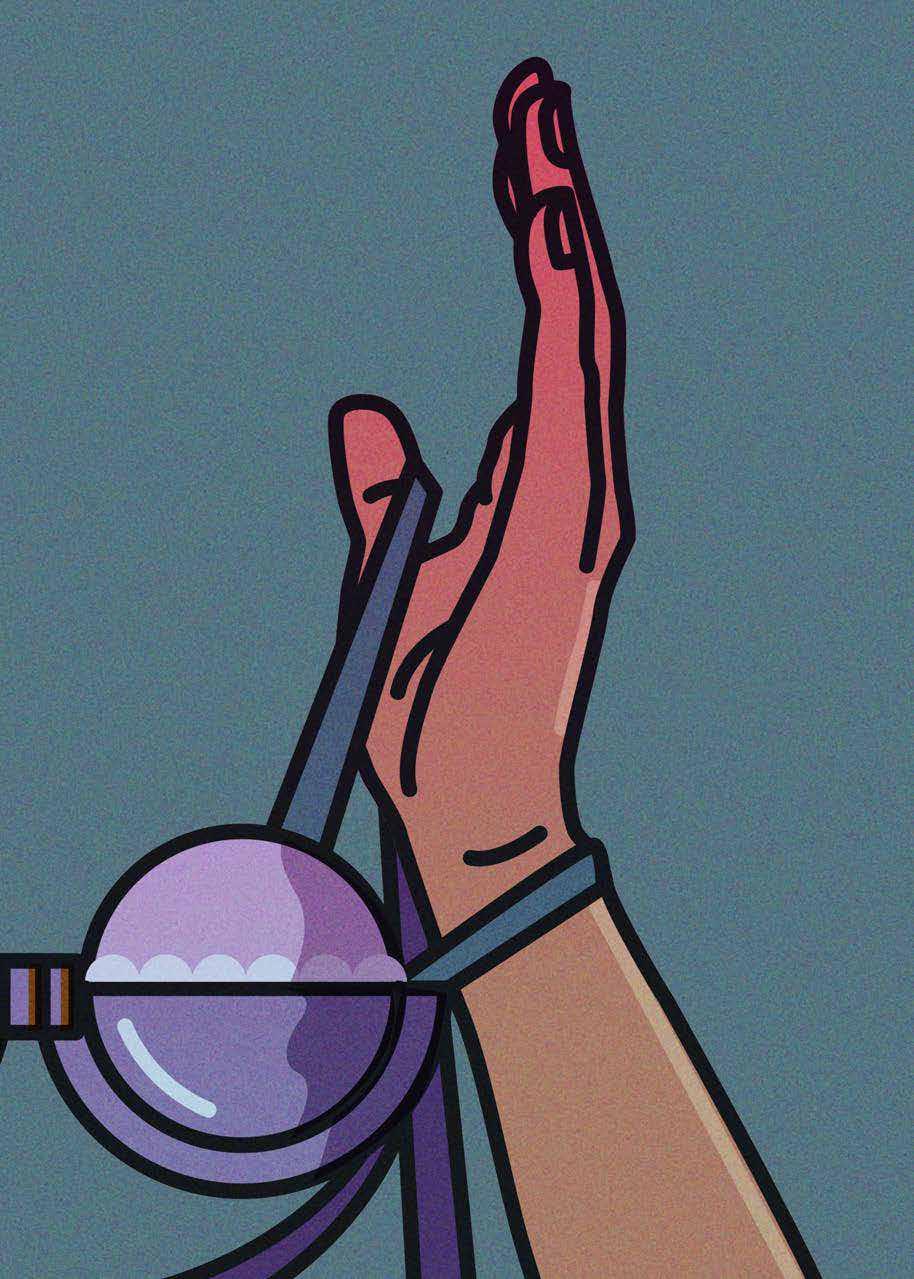
4 minute read
Behind Bras: Q&A with Barbara Burton

Behind Behind
Advertisement
Behind Br


as
We chatted all things bras and business with Barbara Burton, the woman striving to provide employment opportunities in the fashion industry for women affected by the criminal justice system.
Words: Hareem Ghani & Raeesah Akhtar Illustration: PPaint
Tell us a bit about yourself and your business.
I’m Barbara, in my mid-sixties, mother of three and grandmother of four. I’ve always worked in personal development and Human Resources (HR) for large corporations such as Wireless, British Gas and Premier Inn. In 2008 a crime was committed and I was imprisoned four years later. Before my charge, I put together a plan for a lingerie business, so when I left prison I started to put the business plan into action.
What inspired you to start your business?
Initially, I wanted to make lingerie because I knew it would be hard to find a job as a woman in her late fifties. I also love anything and everything about fashion! For me, when you put your lingerie on, regardless of the brand or price, you wear it close to your heart. I think there’s a feel-good factor with underwear and that’s why I love lingerie.
Were you able to prepare for your business in prison? If so, how?
During my last four months in prison, my ROTL (Release on Temporary Licence) was a secretary role for a London-based charity that helped men to train as carpenters. When I turned up and sat down with the director who gave me the job, he said, “So, tell me the real reason you’re on ROTL?” And I said, “Well, I have this business plan”, and I explained “but I need to understand how to make lingerie and how to set up a lingerie business.” There used to be a charity called Changing Past that paid for me to go to London College of Fashion to learn how to make lingerie. They forked out quite a lot of money, around £4-5000 for me to do an undergraduate level course in lingerie manufacturing and lingerie business, which helped me develop my practical skills.
How were you able to get the business off the ground?
I started off wanting to make beautiful lingerie and I now have a collection of eight pieces, with another line planned. Halfway during last year, I had little funding and no sales so I changed my focus slightly to prioritise setting up BehindBras Fashion Foundation, rooted in employment, training and education. With this change, I’m hoping that, in 2020, I can sell lingerie and train others.
What role did social media play in your business development?
I made my website and social media profiles myself (I set them up before I actually had a product). I attended some evening courses on social media through an organisation called TechPixies. Social media has played a really important part in my business. The name of the business has also helped because people are quite inquisitive about it – they usually call it ‘Behind Bars’ and I have to correct them!
What are your future hopes for the business, and in general?
My future hopes are not to rely on grants. I am changing the business model so that I’m not chasing grants or spending time filling out applications; but instead doing
what I really want to do, which is to help women who have been in prison and women still serving their sentences. I am in the process of setting up a programme called ‘Inspiring Women Inside and Out’ offering personal development courses, both in prison and in the community, to help women find out what type of career they would like in the fashion and creative industries, ranging from textiles and social media, to film and photography. I’m honing in on the fashion industry because I think there is a shortage of skilled, experienced people in Britain that can sit behind a sewing machine. My vision is to upskill these women so they can work for BehindBras as associates or set up their own businesses.
If you could give one piece of advice to someone interested in setting up their own business, what would it be?
You have to be prepared to persevere. It’s only now, six years after setting up my business, that it’s starting to make a mark. It’s becoming easier to proudly say, “Yes, I have been to prison but I am doing something about it.” There are a lot of women who want to turn their own lives around, some just need more support than others to get back on the right track.
What’s next for Barbara?
Over the next four months, I plan to visit every women’s prison and get support from governors and learning skills officers, so that I can spread the word about upcoming employment days. Most importantly, I want to reach out to women and show them that there is someone who has been in their shoes. I refer to the women’s prison estate as the ‘forgotten women’ because they only account for 5% of the prison population. I want ‘forgotten women’ to realise that there is someone out there trying to help them and that I will be seeing them in the next six months.
You can learn more about Barbara’s business by visting www.behindbras.org.uk; alternatively, you can follow @BehindBras on Twitter.






